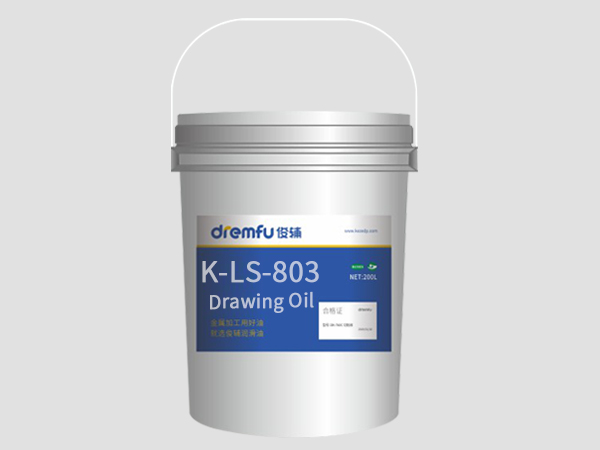

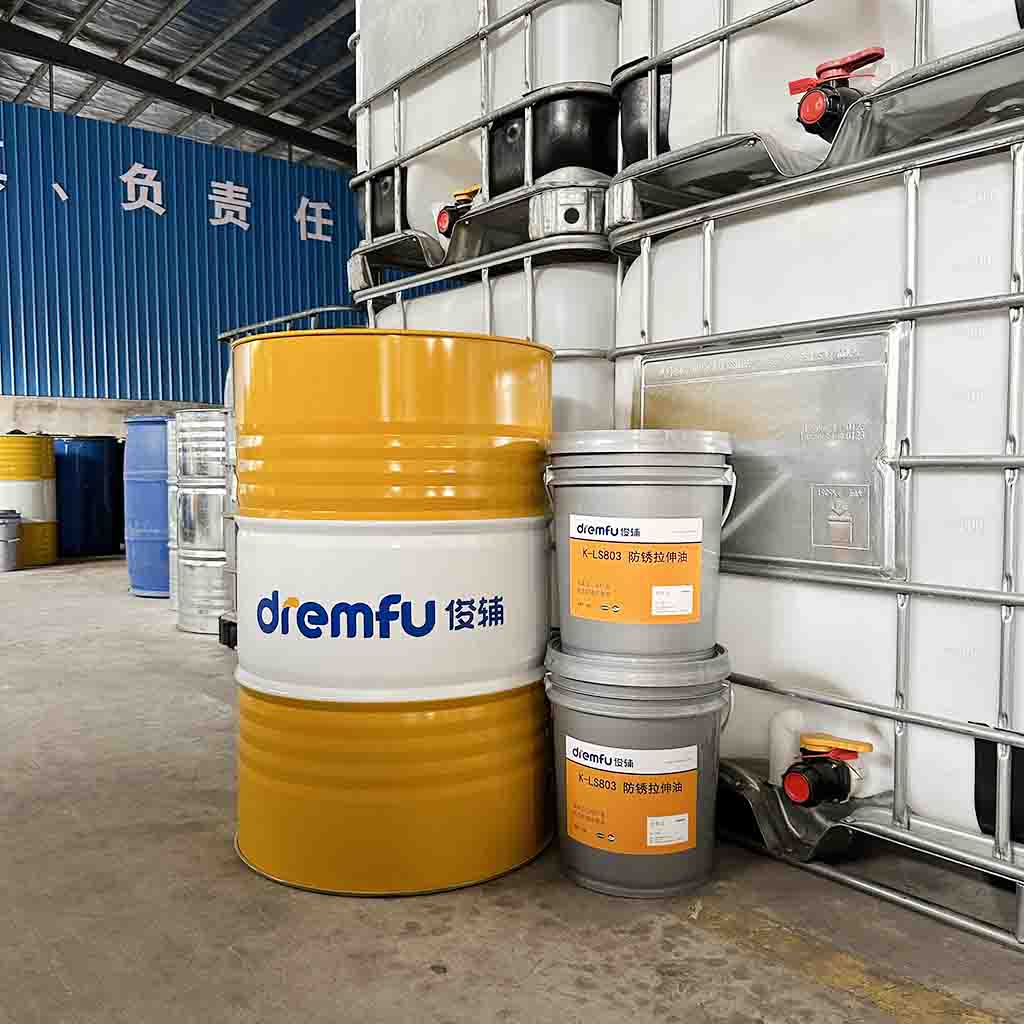
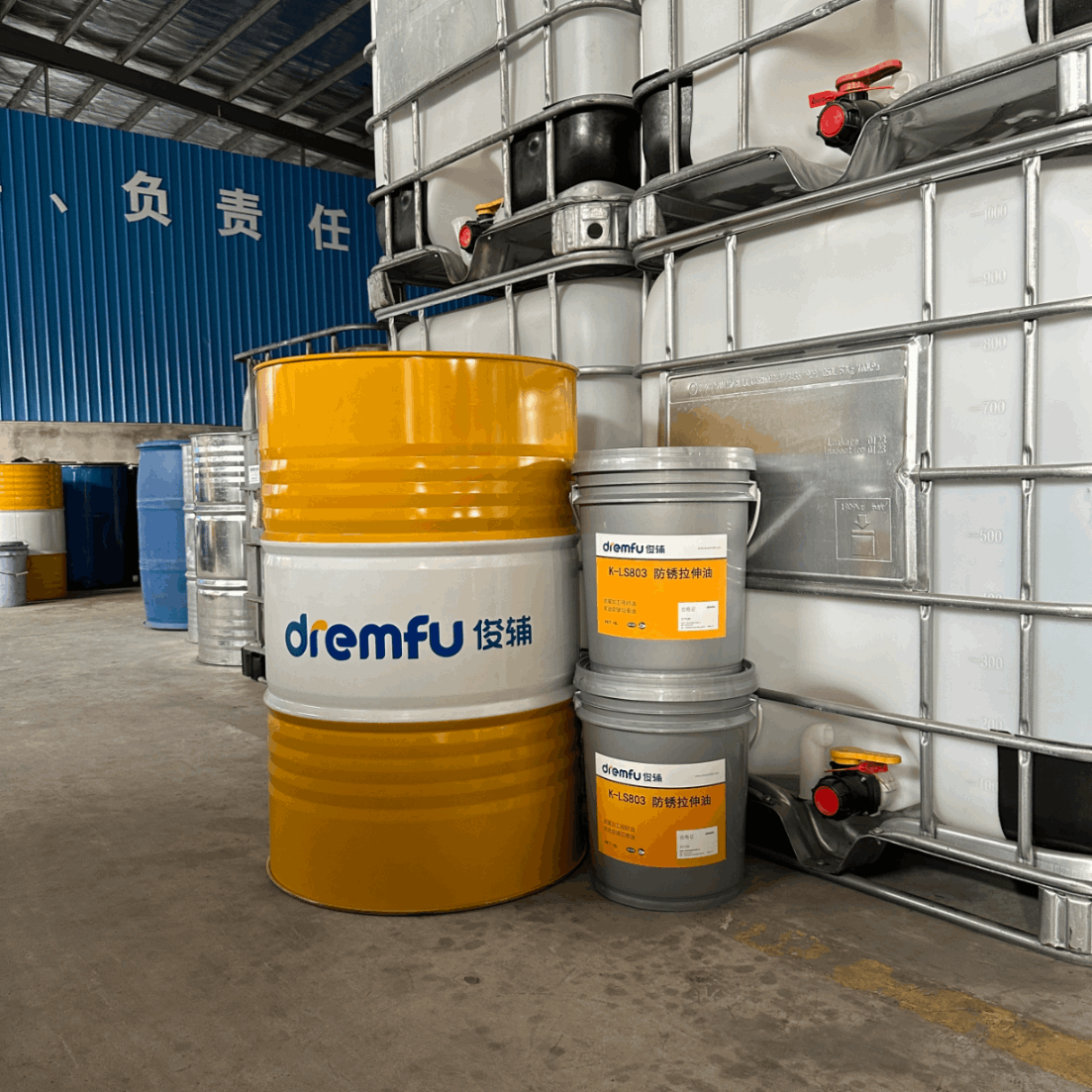
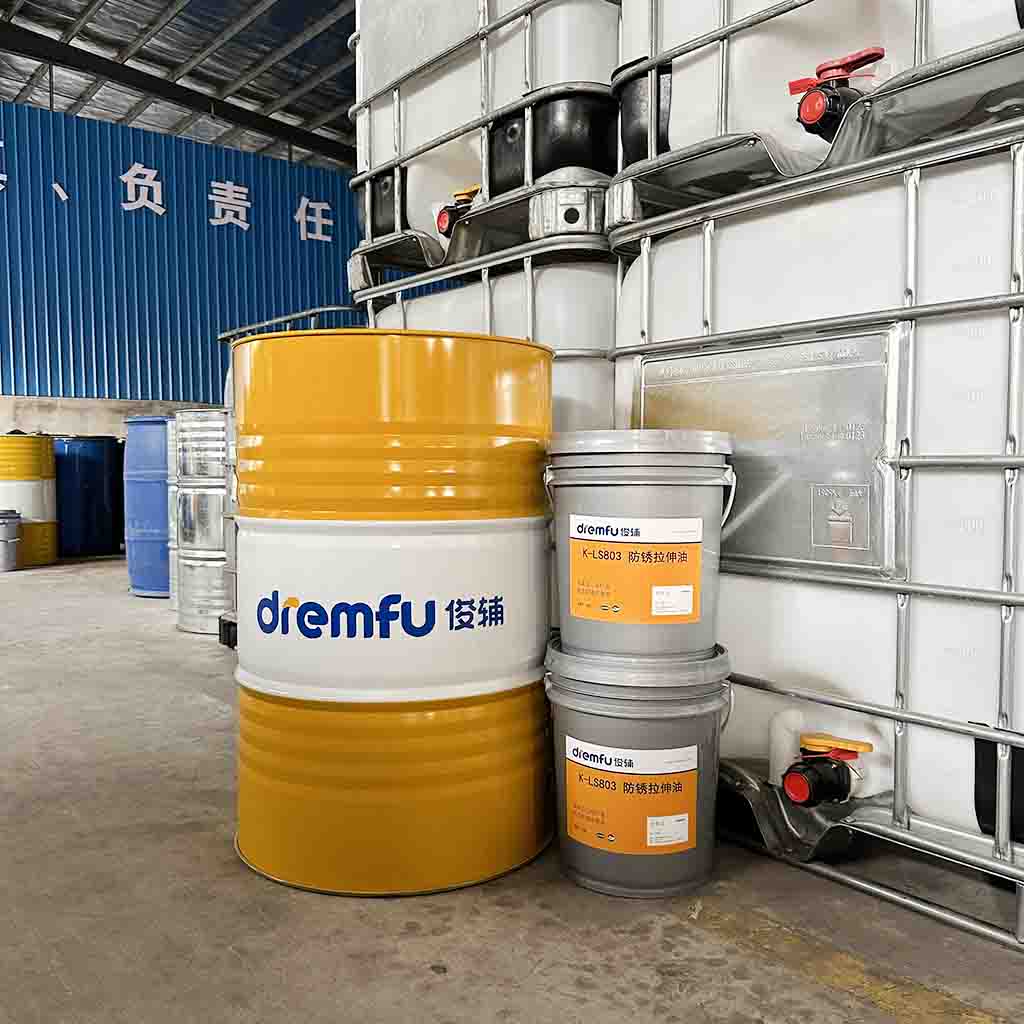
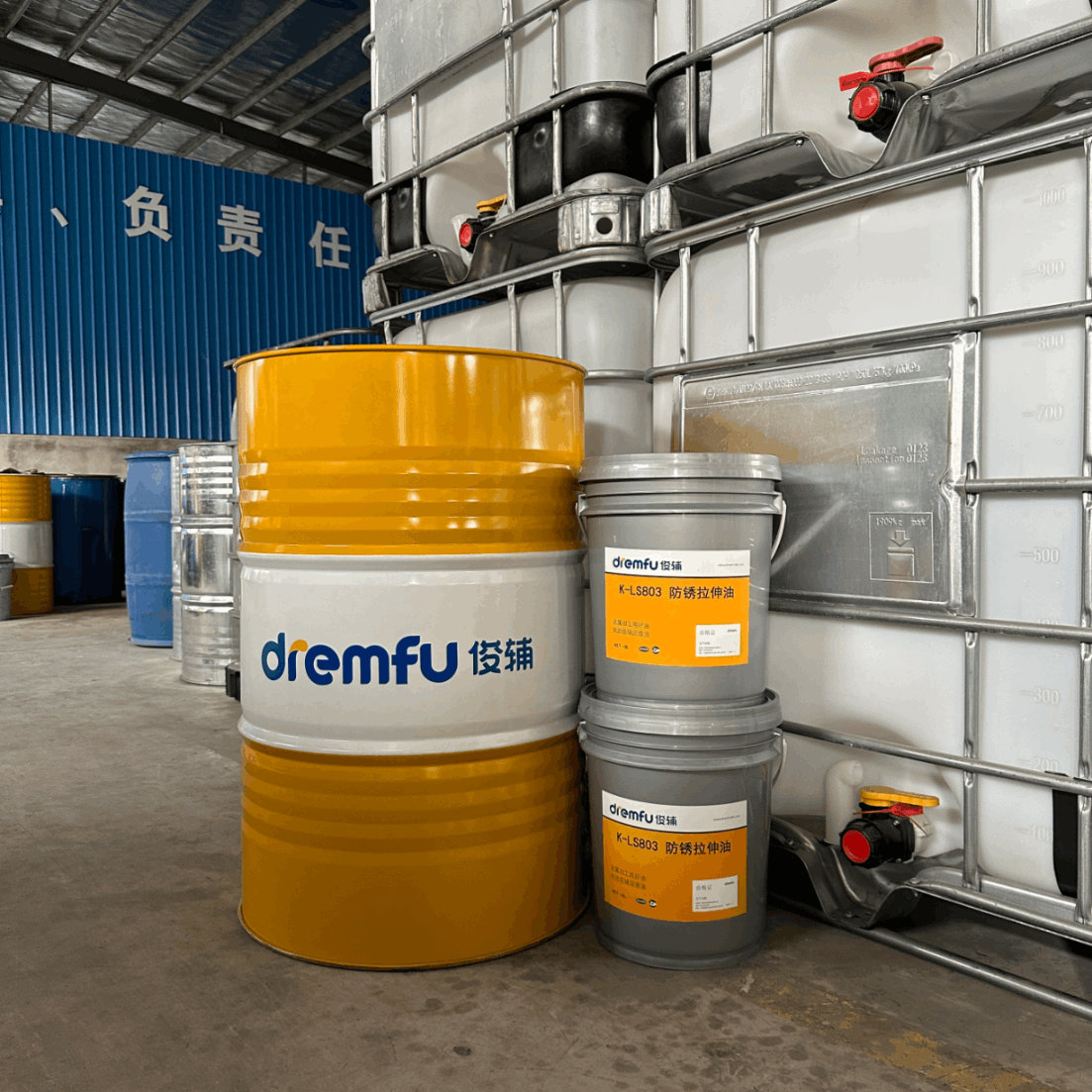
【Product Performance】
K-LS815 Anti Rust Stretching Oil is a high-performance forming oil designed for easily rusted metals such as iron, cast iron and ordinary stainless steel. It has medium viscosity, excellent adhesion, extreme pressure and rust resistance, and is suitable for high-load processes such as stamping and stretching. It can improve the yield rate, reduce mold wear, prevent rust in the short term, and improve overall processing efficiency.
【Product Parameters】
Project | Typical Data |
kinematic viscosity 40℃/(mm2/s) | 30~35 |
flash point (°C) | >180℃ |
pour point (°C) | -10 |
Corrosion (100°C, 3 hours) steel, copper | qualified |
mechanical impurities | qualified |
moisture content | / |
appearance | yellow transparent |
*The above parameters are for reference only. Specific adjustments may be made based on the actual processing conditions of your company.
【Performance Characteristics】
★Lubricity: Excellent adhesion, strong lubricating ability, resulting in a good surface finish for the workpiece, while providing excellent protection for the tooling.
★Rust resistance: Outstanding rust resistance, providing effective protection for metals without causing corrosion or discoloration.
★Low oil viscosity makes it easy to clean.
【Packaging Specifications】
18L/ plastic drum, 200L/ large iron drum
【Application Range】
● Processing of rust-prone metal materials such as iron, cast iron, and common stainless steel for stamping and stretching forming.
![]() K-LS803 Anti-Rust Stretching Oil.pdf
K-LS803 Anti-Rust Stretching Oil.pdf
Features
Viscosity
Anti Rust Stretching Oil has medium viscosity and can form a stable oil film on the metal surface, providing continuous lubrication and anti-rust protection. Moderate viscosity, easy coating, not easy to shake off, suitable for brushing, spraying and other methods, taking into account fluidity and adhesion, improving processing efficiency and surface quality.
Excellent adhesion
Anti Rust Stretching Oil has excellent adhesion and can firmly cover the metal surface, and is not easy to fall off even under high-speed stamping and heavy-load stretching. It effectively maintains the stability of the oil film, improves the lubrication and anti-rust effects, while reducing oil loss, ensuring molding quality and mold life.
Strong extreme pressure performance
Anti Rust Stretching Oil has strong extreme pressure performance and can form a protective film during high-pressure stamping and stretching to prevent direct metal contact and avoid surface damage such as scratches and die bites. At the same time, it effectively reduces mold wear, adapts to heavy-load processing, and improves the quality of finished products and the service life of molds.
Advantages
Improve the yield rate: reduce defects such as sticking and scratches during stretching, and improve product yield.
Extend mold life: Extreme pressure lubricants effectively reduce the frequency of mold wear, extend the service life, and save maintenance costs.
Short-term anti-rust protection: No need to clean immediately after processing, it can provide effective anti-rust protection in the short term, suitable for transit or inventory.
Convenient operation: Medium viscosity is easy to spray or roll, suitable for automated oiling equipment, and improve production efficiency.
Strong adaptability: Suitable for various stretch forming processes, meet the processing needs of different metals, and have a wide range of applications.
FAQ
Why does the workpiece still rust after processing?
It may be that the oil film fails to completely cover the metal surface, or the environmental humidity is high and the anti-rust cycle is too long. It is recommended to ensure that the oil is evenly applied, and if necessary, strengthen the seal or shorten the storage time.
What should I do if the oil film breaks during processing?
Oil film breakage is usually caused by excessive pressure or oil aging. It is recommended to check whether the processing parameters are overloaded, or replace new oil to maintain the cleanliness of the oil.
Is the rapid wear of the mold a problem with the oil?
If the lubrication is insufficient or the extreme pressure performance of the oil is insufficient, it will accelerate the wear of the mold. Check whether the oil is selected appropriately and whether it evenly covers the processing area.
Why is there serious oil splashing during processing?
It may be caused by excessive oil application or low viscosity. It is recommended to control the amount and use the appropriate viscosity grade to avoid equipment pollution and waste of resources.
What should I do if the oil is difficult to clean after use?
If the residual oil film is thick, it may be due to strong adhesion or the oil is not removed in time. You can use a special degreasing cleaning agent, or adjust the oil formula to select an easy-to-clean product.